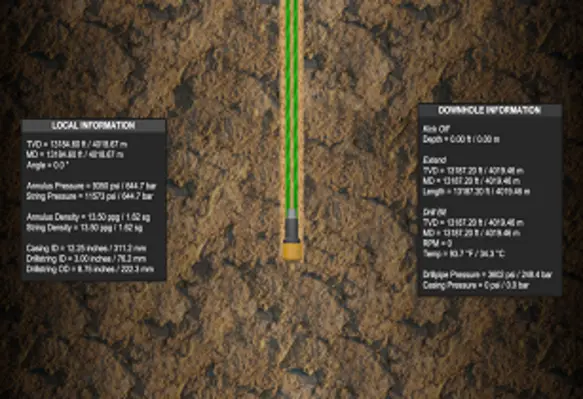Drilling Systems, a provider of advanced drilling simulation technology and part of 3t Energy Group, has launched a next-generation DrillSIM Downhole model to support realistic training for geothermal applications
The model has been implemented for the first time at the Drilling Simulator Celle (DSC), a research facility of Clausthal University of Technology (TUC) in Germany as part of a collaborative research project supported by the Federal Ministry for Economic Affairs and Climate Action.
This downhole model will further enhance the research and development capabilities of new and existing DrillSIM simulators to allow delegates to practice complex operations such as directional drilling, kick tracking, and stuck pipe, in a highly realistic and detailed virtual environment. Its new and improved key features include additional real-world data modelling, an advanced thermal and dynamic design, drill string vibration, a complex 3D well path and increased focus on the transport of cuttings commonly found in deep drilling operations.
Drilling Simulator Celle elaborated the basic principles and mathematical formulation of the model which is based on simulations and experiments. This allowed Drilling Systems to develop and provide the DrillSIM API (Application Programming Interface) which allowed students to write and integrate programs in C# and Python to alter the behaviour of the simulator. Working closely with TUC, Drilling Systems worked to advance the functionality of the API, building upon and strengthening the capabilities of the DrillSIM Downhole Model to support more complex and detailed operations.
Clive Battisby, COO of Drilling Systems, said, “We are delighted to have collaborated with the TUC to develop our latest generation of the DrillSIM Downhole model. In high-hazard industries like oil and gas, the risk of human error can be fatal, meaning the level of detail in our simulators is absolutely essential to ensuring personnel feel confident and well-equipped for work out in the field.”
Harits Alkatiri, PhD candidate at the university, added, “We’re excited to be able to offer our students enhanced training that has the ability to simulate drilling operations of deep geothermal wells. With the ability to include possible problems one might encounter in a high degree of detail, we are able to analyse and optimise such complex operations.”










